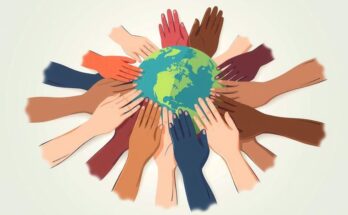Iran’s Continuing Repression of Dissent
Despite promises of reform by the new Iranian president, authorities have ramped up their brutal repression, especially targeting human rights defenders, women, and ethnic and religious minorities amidst the waves of dissent from 2022 protests. Human Rights Watch highlights these ongoing abuses in its World Report 2025.
A Broader Context of Global Repression
In her introductory essay, Executive Director Tirana Hassan mentions that across over 100 nations, leaders have cracked down on dissidents by arresting journalists and political activists. She notes a disturbing trend, where more than 70 elections in 2024 have allowed authoritarian leaders to thrive via discriminatory policies and rhetoric.
Executions and Unfair Trials
Iran remains among the top five countries for executions, with over 400 executions reported in the first half of 2024 by the United Nations. This trend reflects a vicious cycle where political prisoners and ethnic minorities face newly issued death sentences. Nahid Naghshbandi from Human Rights Watch states, “The Iranian authorities’ ongoing repression exemplifies an assault on rights that disproportionately targets women and minorities.”
Stricter Restrictions and State Violence
Authorities have clamped down on freedoms of assembly and expression, arresting dozens of activists, lawyers, and students in 2024. Families of those killed during protests are also at risk, demanding accountability for the blatant violations against their loved ones. The denial of medical care in prisons has reached alarming levels, affecting countless detainees.
New Restrictions on Dress Codes
The new law on compulsory hijab enforcement introduces severe penalties, including fines, longer sentences, and job restrictions. This law symbolizes the increased state control and repression of women’s rights. Meanwhile, Baha’is have faced intensified scrutiny with many arrests and sentences, emphasizing a long-standing, systematic campaign against this minority group.
Violent Crackdowns on Border Couriers
The authorities have unleashed lethal force against Kurdish border couriers, known as Kulbars, who navigate harsh terrains to transport goods, often driven by poverty. These couriers battle constant danger and their lack of justice further compounds their suffering under severe mistreatment by Iranian authorities.
A Call for Accountability
“The international community should address the escalating repression in Iran and hold Iranian authorities accountable,” Naghshbandi urges. As dissent grows louder, the need for global intervention becomes increasingly pressing.
– Human Rights Watch reports intensified repression in Iran under the new president. – Over 400 executions occurred in 2024’s first half, making Iran among the top executioners. – New laws impose severe penalties for hijab violations, targeting women’s rights. – Kurdish couriers face violence and mistreatment; Baha’is are increasingly oppressed. – Calls for international accountability resonate louder amid growing dissent.
In summary, Iran’s current landscape is marked by extreme repression, particularly against women, minorities, and dissenters. Despite promises of change, the state has tightened its hold through unjust trials, executions, and harsh laws. The plight of marginalized groups, especially the Baha’is and Kurdish couriers, exemplifies the urgent need for international attention and intervention to safeguard human rights in Iran.
Original Source: www.hrw.org



